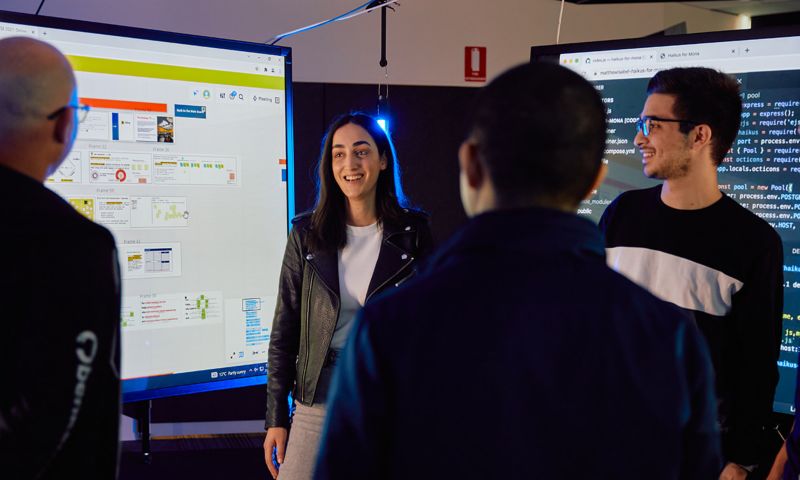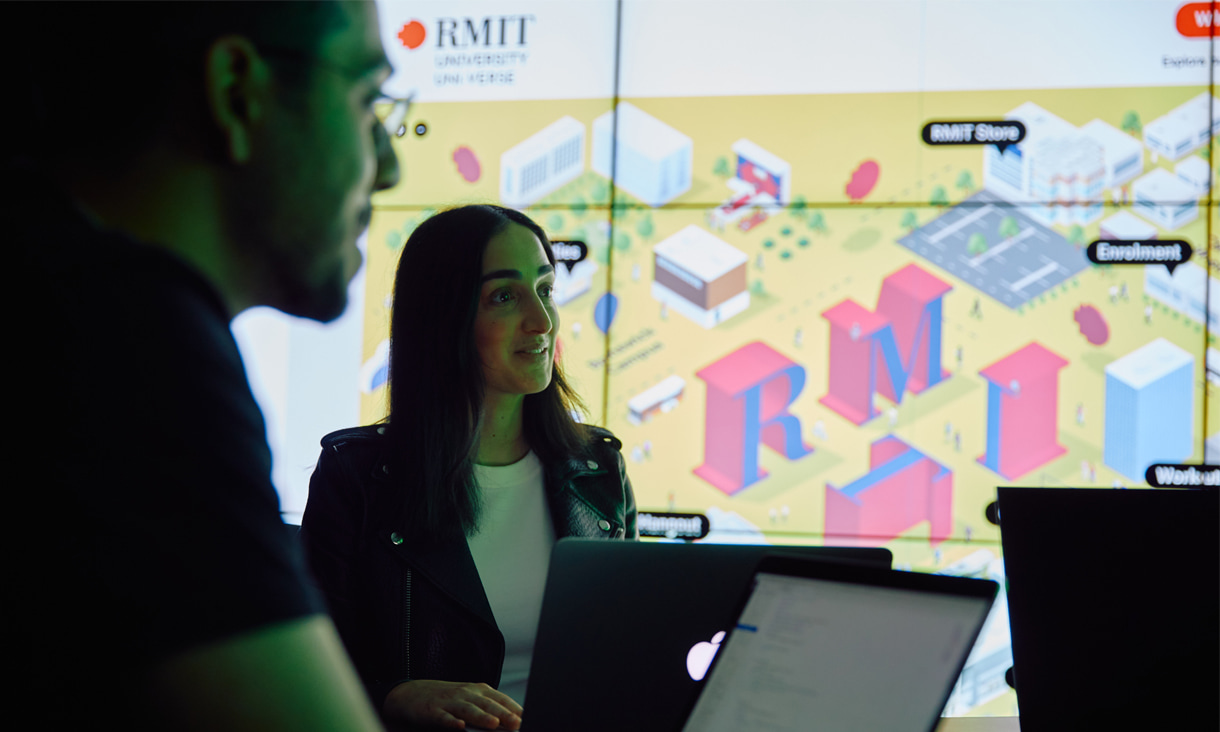What does hands-on learning look like at RMIT?
Ever wondered what hands-on learning looks like in your dream course? Practical learning is more than just work experience – discover what hands-on learning means at RMIT.
Four reasons to choose a career in IT, even if you don't know tech
Expanding your tech skills isn’t just for those with a background in IT. Regardless of your skill level, you can gain the skills to land an in-demand career in the tech industry.
How your first year in an IT undergraduate prepares you for the future
Before starting a course in IT you’ll want to know how RMIT puts tomorrow in your hands. At RMIT your first year prepares you for the future of work with hands-on experiences like hackathons.




